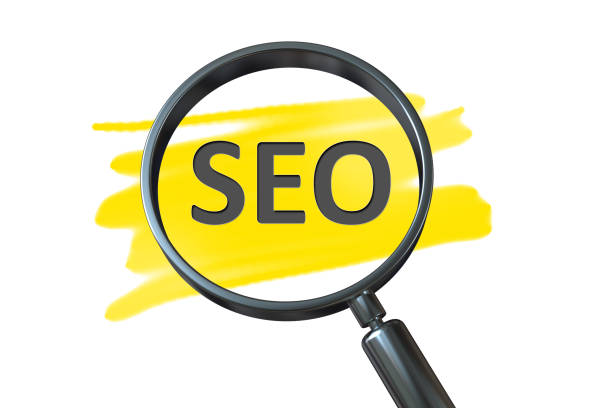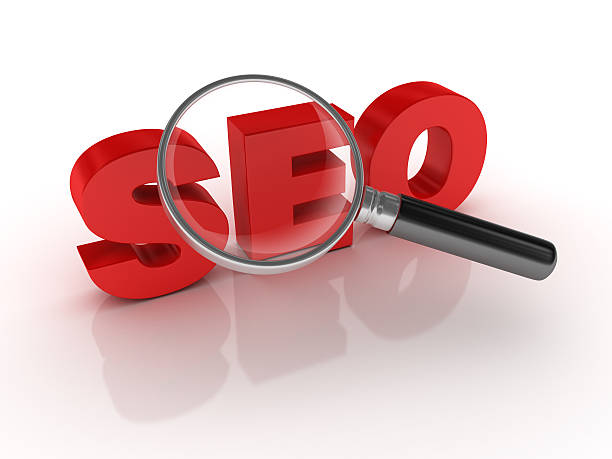What is Off-Page SEO and Why is it Important?

#Off-Page SEO, or Off-Page SEO, refers to a set of activities performed outside your website with the goal of improving the website’s ranking in search engine results like Google.
Off-Page SEO is a process that shows search engines your website is reputable, relevant, and valuable.
In fact, search engines use external signals to better understand your website’s credibility and position in the online world.
Off-Page SEO is not limited to link building and includes broader activities such as branding, content marketing, social media, and online public relations.
The importance of Off-Page SEO is due to several reasons:
- Increased Credibility and Trust Quality links from reputable websites increase your website’s credibility.
- Improved Search Ranking The more reputable your website, the higher its chances of achieving a better ranking in search results.
- Increased Organic Traffic Higher search rankings lead to increased organic traffic to your website.
- Branding Off-Page SEO activities help you establish your brand in the online world.
By understanding the importance of Off-Page SEO and implementing it correctly, you can significantly improve your website’s ranking and attract more traffic.
Off-Page SEO is a long-term investment that will yield sustainable results.
Tired of losing customers due to poor e-commerce website design? With Rasawweb, solve this problem forever!
✅ Increase sales and visitor-to-customer conversion rate
✅ Smooth and engaging user experience for your customers⚡ Get Free Consultation
Strategic Link Building: The Heart of Off-Page SEO

Link building is one of the most important, and perhaps the main, part of Off-Page SEO.
Links act as a vote of confidence for your website, and search engines use them to evaluate your website’s credibility and value.
The more numerous and higher quality the inbound links (Backlinks) to your website, the greater the likelihood of achieving a higher ranking in search results.
Types of Links from an SEO Perspective:
- Natural Links These links are given to your website automatically and without any effort on your part.
- Manual Links These links are obtained through your efforts and follow-up via various methods such as guest posting, participating in forums, and …
- Self-Created Links These links are created by yourself on other websites (e.g., social media profiles).
Tips for Effective Link Building:
- Quality Over Quantity Instead of focusing on a large number of links, focus on their quality.
Links should come from reputable websites relevant to your field of activity. - Link Diversity Try to get links from various sources.
- Appropriate Anchor Text Use relevant keywords in the link text (Anchor Text).
- Natural Link Building Link building should be done naturally and gradually.
Link building is a time-consuming and specialized process, but by following the tips above, you can acquire high-quality links that will have a positive impact on your website’s SEO.
Off-Page SEO must be done with care and planning to achieve the desired results.
Social Networks and Their Impact on Off-Page SEO

Social networks do not directly impact your website’s ranking in search results, but they can indirectly help improve Off-Page SEO.
Active participation in social networks can lead to the following:
- Increased Brand Visibility The more your brand is seen on social networks, the higher the chance that more people will become familiar with your website.
- Increased Traffic Sharing website content on social networks can lead to an increase in website traffic.
- Creation of Natural Links If your content is shared on social networks, others may link to your website.
- Improved Audience Engagement Social networks allow you to interact with your audience and answer their questions.
Tips for Using Social Networks in Off-Page SEO:
- Choose Appropriate Social Networks Select social networks where your target audience is present.
- Produce Engaging and Valuable Content Create content that is attractive and valuable to your audience.
- Engage with Your Audience Respond to your audience’s questions and comments.
- Share Website Content Share your website’s content on social networks.
Optimizing Off-Page SEO helps you with website ranking
In summary, active participation in social networks can help improve your website’s Off-Page SEO.
| Social Network | Link | Description |
|---|---|---|
| instagram.com | Popular social network for sharing images and videos | |
| linkedin.com | Professional social network for business connections | |
| twitter.com | Social network for sharing news and opinions |
Content Marketing and Its Role in Off-Page SEO

Content Marketing is a marketing strategy that focuses on creating and distributing valuable, relevant, and engaging content for the target audience.
Content marketing can play a significant role in improving your website’s Off-Page SEO, because:
- Attracting Natural Links High-quality and valuable content increases the likelihood of others linking to it.
- Increased Brand Visibility Engaging and useful content can establish your brand in the online world.
- Improved Audience Engagement Valuable content can encourage audiences to interact with your brand.
- Increased Traffic Good content can attract more traffic to your website.
Tips for Effective Content Marketing in Off-Page SEO:
- Understand Your Target Audience Produce content that is attractive and relevant to your target audience.
- Produce High-Quality and Valuable Content Create content that provides useful and valuable information to your audience.
- Optimize Content for Search Engines Use relevant keywords in your content.
- Promote Content Promote your content on social networks, email, and other marketing channels.
Content marketing is a long-term strategy that will yield sustainable results.
By producing high-quality and valuable content, you can significantly improve your website’s Off-Page SEO.
Are you dissatisfied with the low conversion rate of visitors to customers on your e-commerce site?
With professional e-commerce website design by Rasawweb, solve this problem forever!
✅ Increase visitor-to-customer conversion rate
✅ Create an excellent user experience and build customer trust
⚡ Get Free Consultation
Branding and Off-Page SEO: A Close Connection

Branding refers to the process of creating a unique and recognizable identity for your business.
Strong branding can have a positive impact on your website’s Off-Page SEO because:
- Increased Brand Awareness The more recognized your brand, the higher the likelihood that more people will link to your website.
- Increased Trust A strong and reputable brand builds greater trust among the audience.
- Increased Direct Traffic More people search for your brand name and directly enter your website.
- Improved Click-Through Rate (CTR) In search results, websites with a stronger brand typically have a higher click-through rate.
Tips for Effective Branding in Off-Page SEO:
- Create a Unique Visual Identity Use a specific logo, colors, and fonts for your brand.
- Create a Clear and Concise Brand Message Your brand message should be easy to understand and memorable.
- Provide an Excellent User Experience Ensure your website offers a good user experience.
- Establish a Strong Brand Name Choose a strong and trustworthy brand name for your business.
- Engage on Social Networks Use social networks to interact with your audience and promote your brand.
One way to strengthen Off-Page SEO is branding
Branding is a long-term process that requires patience and perseverance.
By creating a strong and reputable brand, you can significantly improve your website’s Off-Page SEO.
Online Public Relations and Off-Page SEO

Online Public Relations (Online PR) refers to a set of activities aimed at establishing and maintaining positive relationships with media, bloggers, and other influential individuals in the online world.
Online PR can play a significant role in improving your website’s Off-Page SEO, because:
- Gaining Media Coverage Media coverage on reputable websites can help increase your brand’s credibility and awareness.
- Attracting Quality Links News and reputable websites usually provide high-quality links to your website.
- Improved Search Ranking Media coverage can help improve your website’s ranking in search results.
Tips for Effective Online PR in Off-Page SEO:
- Build Relationships with Media and Bloggers Connect with media and bloggers relevant to your field of activity.
- Provide Engaging and News-worthy Content Produce content that is attractive and news-worthy for media and bloggers.
- Participate in Online Events Participate in online events and get to know influential people in your field.
- Use Social Networks Use social networks to communicate with media and bloggers.
Online PR is a long-term strategy that requires patience and perseverance.
By building positive relationships with media and bloggers, you can significantly improve your website’s Off-Page SEO.
Off-Page SEO proceeds with planning and strategy.
Competitor Analysis in Off-Page SEO

Competitor analysis is one of the important steps in Off-Page SEO.
By examining competitors’ Off-Page SEO activities, you can gain useful insights into their strategies and use them to improve your own strategy.
In competitor analysis, you should pay attention to the following:
- Inbound Links (Backlinks) From which websites do competitor websites receive links?
- Keywords Which keywords do competitors use for SEO?
- Content What type of content do competitors produce?
- Social Networks Which social networks are competitors active on?
Tools for Competitor Analysis:
- Ahrefs
- SEMrush
- Moz
Using these tools, you can obtain precise information about competitors’ Off-Page SEO activities.
After gathering information, you should analyze it and use it to improve your own Off-Page SEO strategy.
For example, you can ask websites that have linked to competitors to also link to you.
Or you can create content that is better and more comprehensive than your competitors’ content.
| Metric | Competitor 1 | Competitor 2 | Your Website |
|---|---|---|---|
| Number of Backlinks | 1200 | 850 | 500 |
| Domain Authority | 55 | 48 | 35 |
| Top Keywords | SEO, Digital Marketing | Web Design, Web Development | Technical SEO, Off-Page SEO |
Measuring and Evaluating Off-Page SEO Results

Measuring and evaluating Off-Page SEO results is essential to understanding the success of your strategy.
By measuring results, you can understand which activities are effective and which need improvement.
To measure Off-Page SEO results, you should pay attention to the following:
- Organic Traffic How much has your website’s organic traffic increased?
- Keyword Ranking How much has the ranking of your target keywords improved in search results?
- Domain Authority (DA) How much has your website’s Domain Authority increased?
- Number of Inbound Links (Backlinks) How much has the number of inbound links to your website increased?
Tools for Measuring Off-Page SEO Results:
- Google Analytics
- Google Search Console
- Ahrefs
- SEMrush
- Moz
Using these tools, you can obtain precise information about your Off-Page SEO results.
After gathering information, you should analyze it and use it to improve your strategy.
Does your current website build the trust that potential customers should have in your business? If the answer is no, it’s time to have a professional and impactful corporate website with Rasawweb.
✅ Fully custom design tailored to your brand identity
✅ Increased lead generation and business credibility in the eyes of customers⚡ Contact us for a free consultation!
Common Mistakes in Off-Page SEO and How to Avoid Them

In Off-Page SEO, avoiding common mistakes can help maintain your website’s ranking and credibility.
Some common mistakes include:
- Excessive Link Building Excessive and unnatural link building can lead to your website being penalized by Google.
- Buying Links Buying links from disreputable websites can harm your website.
- Using Identical Anchor Texts Using identical anchor texts for all links can appear unnatural.
- Ignoring Social Networks Social networks can play a significant role in Off-Page SEO.
- Lack of Competitor Analysis Lack of competitor analysis can lead to missed opportunities.
To avoid these mistakes, you should have a principled and natural Off-Page SEO strategy.
Instead of focusing on quantity, focus on link quality.
Use diverse anchor texts.
Be active on social networks.
And regularly analyze competitors.
By following these tips, you can avoid common mistakes in Off-Page SEO and consistently improve your website’s ranking.
What Will Be the Future of Off-Page SEO?

The future of Off-Page SEO is moving towards artificial intelligence, user experience, and high-quality content.
With the advancement of artificial intelligence, search engines will be able to better identify high-quality and relevant content.
Therefore, producing high-quality and valuable content for the audience will become more important.
User Experience (UX) will also play a crucial role in the future of Off-Page SEO.
Websites that offer a better user experience will have higher rankings in search results.
Therefore, improving website speed, designing an appropriate user interface, and providing engaging content are among the actions you should take to enhance user experience.
Link building will remain one of the important factors in Off-Page SEO, but the quality of links will become more crucial.
Links should come from reputable websites relevant to your field of activity.
Using black-hat link-building techniques can lead to your website being penalized by Google.
In summary, the future of Off-Page SEO is moving towards high-quality content, user experience, and reputable links.
By focusing on these factors, you can consistently improve your website’s ranking in search results.
The importance of Off-Page SEO for a website’s visibility is very crucial.
Frequently Asked Questions
| Row | Question | Answer |
|---|---|---|
| 1 | What is Off-Page SEO? | Off-Page SEO refers to a set of actions performed outside your website to improve its ranking in search engines. These actions include link building, social media presence, branding, and …. |
| 2 | Why is Off-Page SEO highly important? | Off-Page SEO shows search engines that your website is reputable, popular, and trustworthy. High-quality backlinks from reputable sites are strong signals for better ranking and help increase your domain authority. |
| 3 | What are the most important components of Off-Page SEO? | The most important components of Off-Page SEO include: Link Building, Content Marketing, Social Media Marketing, Influencer Marketing, and Online Reputation Management. |
| 4 | What is a backlink and why is it important for Off-Page SEO? | A backlink is a link that points from another website to your website. These links act as a ‘vote of confidence’ in Google’s view and indicate the credibility of your content. The more numerous and higher quality the backlinks, the better your site’s ranking will be. |
| 5 | What are the types of backlinks in terms of their impact on SEO? | The two main types of backlinks are DoFollow and NoFollow. DoFollow backlinks pass authority (Link Juice) and directly impact ranking. NoFollows do not pass authority but can still generate traffic and help make the link profile appear natural. (Also UGC and Sponsored) |
| 6 | How can one create high-quality backlinks for their website? | To build high-quality backlinks, methods such as: creating excellent and shareable content, guest posting on relevant and reputable sites, broken link building, Digital PR, and competitor backlink analysis can be used. |
| 7 | What are Toxic Backlinks and how do they affect a site? | Toxic or spam backlinks are links that point to your site from low-quality, spammy, or irrelevant websites. These backlinks can harm your site’s ranking and even lead to penalties by Google’s algorithms. |
| 8 | What is the role of social networks in Off-Page SEO? | Although social signals (likes, shares, etc.) are not direct ranking factors, they do help with Off-Page SEO. They increase content visibility, drive direct traffic to the site, and ultimately increase the chance of acquiring natural backlinks and improving brand recognition. |
| 9 | What is the importance of diversity in a backlink profile? | Diversity in a backlink profile means that your links come from various sources (blogs, forums, news sites, directories), with diverse anchor texts, and include a mix of DoFollow and NoFollow links. This diversity signals to Google that your link building is natural and organic. |
| 10 | What are the common mistakes in Off-Page SEO that should be avoided? | Common mistakes include: buying backlinks in large volumes from low-quality sources, over-optimization with target keywords, neglecting quality in favor of quantity in backlink building, lack of diversity in the link profile, and ignoring toxic backlinks and not disavowing them. |
And other services of Rasa Web Advertising Agency in the field of advertising
- Smart Website Development: A novel service to enhance campaign management through key page optimization.
- Smart Direct Marketing: A professional solution to improve SEO ranking by focusing on attractive UI design.
- Smart Sales Automation: Professional optimization for increased sales using SEO-driven content strategy.
- Smart Data Analysis: A fast and efficient solution to increase click-through rates by focusing on marketing automation.
- Smart Content Strategy: A novel service to enhance SEO ranking improvement through the use of real data.
And over hundreds of other services in the field of internet advertising, advertising consultation, and organizational solutions
Internet Advertising | Advertising Strategy | Advertorials
Resources
Off-Page SEO Training on Aparat
Off-Page SEO Guide on Hostinger
Off-Page SEO Article on HamyarWP
Off-Page SEO on VirGool
💡 With Rasawweb Afarin, specialists in secure website design and modern digital marketing strategies, precisely achieve your business goals.
📍 Tehran, Mirdamad Street, Next to Central Bank, Kazeroon Southern Alley, Ramin Alley No. 6




